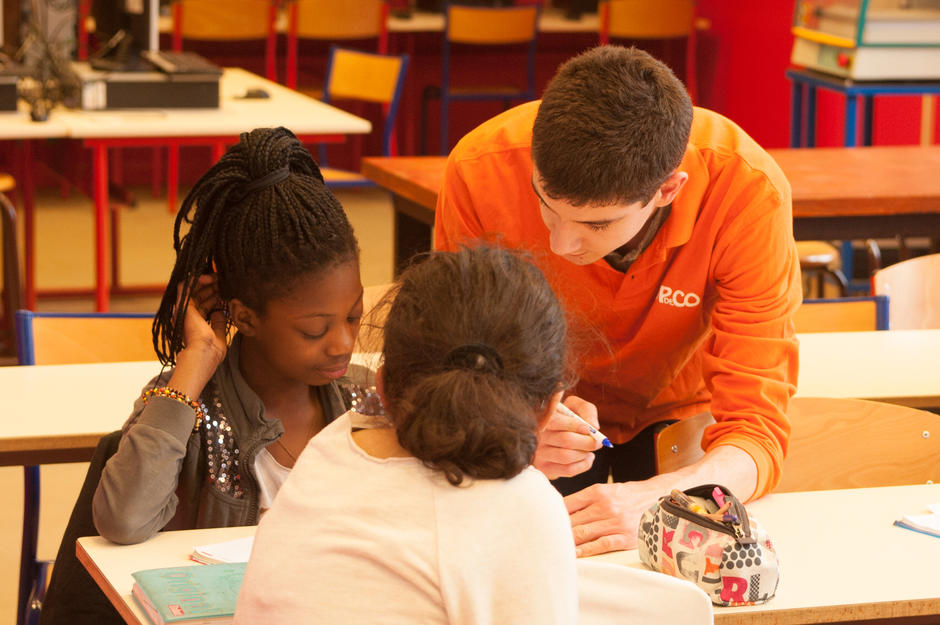
Social and Employment
Place
Ile-de-France, France
Sponsor
Olivier Grunberg, Veolia Transdev
Grant(s)
25,000 € to the Selection Committee at 2008/05/27
Project leader
« Zup de Co wants to act upstream and accompany junior high school entrants, to prevent the early dropping out of certain pupils. Unlike school support agencies, Zup de Co works closely with the teachers and sees itself as a complementary association to public education. Their purpose is to help certain students to follow the programme set by the teacher adequately. »
Olivier Grunberg
As increasingly acknowledged by professionals, the famous "social elevator" has slowed down considerably in recent years. For instance, there are three times fewer students from lower class circles who join an elite school than 10 years ago.
Other warning signs: 15% of the students who enter grade school are poor in reading, writing and arithmetic, and 160,000 youths leave secondary school each year without a degree - nor even the least qualification.
Faced with these alarming findings, a French association, Zup de Co, was formed three years ago on the model of the "Teach America" experiment conducted in the United States. The idea is to encourage the students to reach out to give individualised school support in the junior high schools.
Integrating this school support in the student's curriculum
Unlike the other initiatives in this sector, the one initiated by Zup de Co works in close cooperation with the teachers. The student volunteers help the pupils in difficulty - mainly from disadvantaged neighbourhoods - to keep up with the school rhythm to integrate the lessons that they receive, and ultimately, to avoid becoming "dropouts", which represents the surest way to academic failure. Zup de Co gets its students to work in the grade school classes in the chief subjects: French, mathematics and living languages (usually English). In groups of four or five, they go to the schools identified as "difficult" by the territorial authorities, and get to work after classes are over.
Yet the originality of Zup de Co doesn't stop there: the interests of the volunteer students are also taken into account. The association therefore sets up partnerships with the higher level schools where they take courses in order to utilise their experience.
By demonstrating the seriousness and advantages of their commitment to the youngsters, this enables them to join the overall course curriculum, in the form of university credits or training courses.
To reinforce this demand, the students are recruited, trained and tutored throughout the year by trainers. The association also works with companies in order to promote meetings between the students, the youths that they help and the working world.
This reflects a twofold ambition: the young pupils discover the trades that they knew nothing about and the companies meet students who have already demonstrated serious relational and educational qualities.
Launched at this school reopening in autumn of 2007, Zup de Co accompanied 80 pupils during its first year of operation, with 80 students in several junior high schools of Cergy-Pontoise, Nanterre, the XVIIth and XVIIIth arrondissements of Paris. For 2008-2009, it plans to extend this system to 300 pupils by broadening its field of action to schools in the XIIIth and XIXth arrondissements and a number of communes in the Saclay area.

